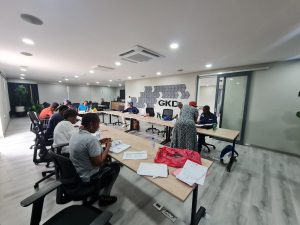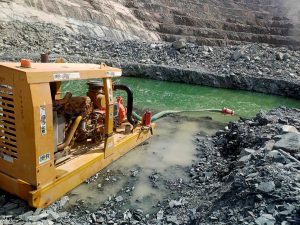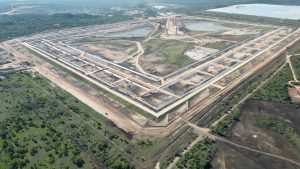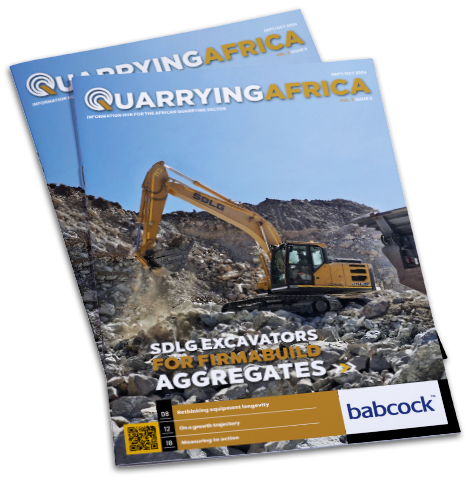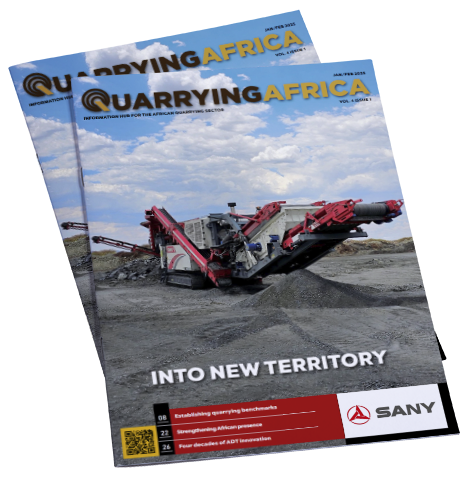Afrimat, a leading mid-tier mining and materials company providing bulk commodities, construction materials, industrial minerals and future materials and metals, recently published its second Environmental, Sustainability and Governance (ESG) Report for the F2024 financial year. The report was released in conjunction with the group’s integrated annual report.
Operating in the mid-tier mining sector, Afrimat is cognisant of its impact on the environment. Environmental management is therefore a critical part of the day-to-day management processes at Afrimat. By understanding the nature of its environmental impact, the company is able to approach its operations in a conscious manner and consistently evaluate the effectiveness thereof in an environmental setting.
“As Afrimat, we recognise that ESG performance is critical to our long-term success and sustainability. We are committed to being responsible stewards of the environment, supporting our employees and communities, and upholding the highest standards of governance and ethical conduct. I am honoured to share with you the progress we have made in integrating ESG principles into our operations and decision-making within this report,” says Collin Ramukhubathi, executive director: People & Sustainability.
Report highlights
- Mining Right Compliance
- Mining right conditions set by the DMRE are reflected in the following documents for each mining operation and annual compliance reports in this regard are submitted to the regional DMRE offices:
– Mine Works Programme; Social and Labour Plan; Environmental Authorisation & Mining Charter
- Other authority requirements also adhered to:
– Water use and air emissions licenses & Land Use Planning Act
- Internal Sustainability
In addition to its operational departments, the Company boasts an internal sustainability team dedicated to driving ESG initiatives and practices within its operations. Comprising experts from various disciplines, this team is tasked with overseeing environmental stewardship, resource optimisation, and the integration of sustainable practices across all facets of the Company.
- Information Compliance
The Group adheres to both POPI and PAIA legislation through the implementation of a privacy policy.
- Technology & Information Governance
Through the effective use of information systems, the Company can make informed decisions, targeted marketing strategies, and the ability to respond swiftly to changing market dynamics. Furthermore, technology empowers the Company to optimise internal processes and improve productivity.
- Anti-Bribery and Corruption
The company’s anti-bribery and corruption policy sets a strong stance against any form of fraudulent or corrupt activities within its operations. The policy emphasises a zero-tolerance approach, outlining strict guidelines and procedures to prevent, detect, and address fraudulent behaviour.
All employees and stakeholders are encouraged to report any wrongdoing through the Whistle-Blowing Hotline.
- Dealings in Securities
The company’s dealings in securities policy outlines guidelines and procedures governing the trading of securities by employees and stakeholders. It aims to ensure transparency, fairness, and compliance with applicable laws and regulations. The policy provides clear instructions on pre-clearance requirements, reporting obligations, and restrictions on insider trading.
People Management
Job creation: Afrimat has played a pivotal role in job creation, employing 2 755 (2023: 2 668) individuals across South Africa, thereby fostering economic growth and opportunity within local communities.
Learning and development: Afrimat is steadfast in its commitment to developing employees across all levels, having achieved a total of 10 381 (2023: 9 181) interventions aimed at fostering continuous growth and skill enhancement.
Corporate Social Responsibility: Afrimat invested R34,4-million (2023: R12,3 million) in CSI, prioritising local labour sourcing for community empowerment. Extensive social and labour plans are established at all mining sites, fostering sustainable growth and positive impacts.
Leadership development: Afrimat in partnership with SBS-ed, launched a Senior Leadership Development Programme aimed at creating exemplary leaders, with 30 employees participating across the group.
Employee Wellbeing – AfriCare Programme AfriCare gives Afrimat employees and their immediate family members access to a network of professional counsellors across South Africa offered by an independent contractor. These services are mostly offered telephonically and via live text, making access is available anytime and anywhere in South Africa.
Transformation
We are committed to integrating genuine transformation that permeates the organisation and understand this to be critical for the sustainability of our business in South Africa. Each subsidiary has a dedicated BEE Committee which actions the plans and recommendations of the Social, Ethics & Sustainability Committee in this regard, and further proactively drives improvements in all B-BBEE categories.
Health and Safety
The company’s Lost Time Injury Frequency Rate (LTIFR) experienced a continuous improvement, from 0,34 to 0,29 by the close of this financial year.
As part of our AfriCare initiative, Afrimat has forged a transformative partnership with Netcare 911. Together, they offer lightning-fast emergency response services for any work-related medical crisis, ensuring our employees receive the care they need when they need it most.
Managing Climate Change
- Operational
– GHG emissions as well as electricity, water usage, waste management and biodiversity are measured and monitored at all operations and the Group is compliant to the latest regulations on GHG reporting, Carbon Tax, carbon budget and carbon offset. –
– Afrimat has embarked on an operational efficiency drive aimed at enhancing overall performance, including both fleet efficiency and fixed plant improvement. The primary focus is on reducing fuel usage and optimising transportation operations, while also recognising the environmental and economic impacts of fuel consumption.
“As we look to the future, we remain committed to advancing sustainability across our operations. Our newly formulated sustainability strategy outlines ambitious objectives cantered on reducing environmental impact, promoting social responsibility, and fostering innovation. By investing in cutting-edge technologies, forging strategic partnerships, and embedding sustainability into every facet of our business, we are poised to drive meaningful progress in the years ahead,” says Loyiso Dotwana, chairman of the Social, Ethics & Sustainability Committee.


